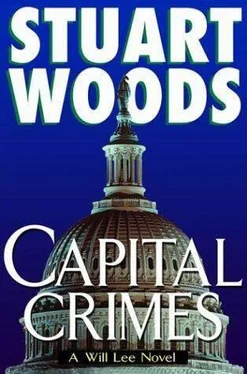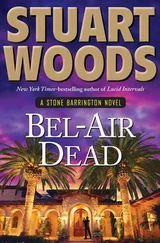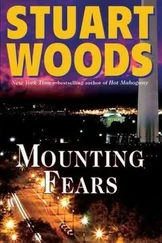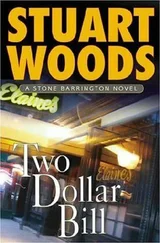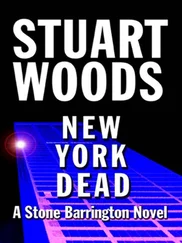“I don’t really have the budget for that sort of tiling, and officially, those apartments belong to the State Department.”
“Charge it to a renovation of the apartment, which is what we’re going to have to do when the search is over. If you have any trouble with State, let me know, and I’ll deal with it. One more thing, Hugh. Majorov says that when they were confronted, the Moores drew weapons and started firing, and that it was self-defense on the part of his people. I want to know what weapons the Moores had drawn from the station’s arsenal and if they were ever recovered.”
English looked at her for a moment. “You’re determined to get Rawls pardoned, aren’t you?”
“No, I’m not. I’m determined to know the truth about this. There’s more going on here than you know about, Hugh.”
English looked incredulous. “More than I know about? More than the fucking DDI for Operations knows about?”
“Not all the information we possess arises from your operations, Hugh. Stuff comes in from outside all the time, you know that.”
“Well, if there’s something you know, why don’t I know it?”
“Because it’s not time, yet. If we find a bug in that apartment, you’ll know everything soon. You’ll have to be content with that for the moment.”
“Right,” English said, getting to his feet and heading for the door.
“And, Hugh?”
He stopped and turned. “Yeah?”
“I want work to start on that apartment today.”
English looked at his watch. “It’s four-thirty in Stockholm now. It’ll have to wait until tomorrow.”
“I want the occupants out tonight-put them in a hotel, if necessary. I want a crew in there at eight o’clock tomorrow morning, and I want them to work 'round the clock until they’re done. Clear?“
“Clear, Madame Director,” English said. He turned and stalked out of her office.
Kate swallowed her anger and went back to her desk. She was getting tired of swallowing her anger where Hugh English was concerned. Sooner or later, he was going to have to go. At his level, there was no sideways move for him; he either had to be promoted or fired, and the only job he could be promoted to was hers. She’d wait until Will was reelected, when there wouldn’t be as much political fallout.
BOB KINNEY STOOD on the doorstep of the house, wearing booties, latex gloves, and a hairnet. He hated wearing the hairnet, but it had to be done, if the scene was going to be preserved and protected from contamination.
“You ready?” the criminalist asked.
“Jack, this is the most important scene you’ve ever worked. The president has taken an interest, and I want everything done right, by the book.”
“That’s the only way I know how,” Jack replied. He nodded to his three assistants. “This is a full-scene sweep,” he said. “That means everything, and with maximum caution. Let’s go.” He turned the key, opened the front door, and stepped inside. “Uh-oh,” he said, looking around.
“What’s the matter?” Kinney asked from the doorway.
“Man, this is clean, and I mean clean .”
FOUR HOURS LATER, Kinney, who was sitting in a chair on the front porch, looked up to see Jack coming out of the house, stripping off his latex gloves. Kinney stood up. “You’re not done, are you?”
“Let me tell you about this house, Agent Kinney,” Jack said. “This house has been cleaned by a professional crew, maybe two or three professional crews, then it’s been wiped down by a pro.”
“You mean you found nothing ?”
“No, I found the fingerprints of eight people on the doorknobs, on the refrigerator, and on the bathroom medicine cabinet-all the places you’d expect to find the prints of people who are considering buying a house. I'll run them all, but I’m telling you now there is not a fingerprint, not a hair, not a ball of fluff in this house that can be used to trace your man. I’ve never seen anything like it.”
Kinney sighed. “All right, if you say so. Can I go in now?”
“Yep, but wear the gear, if you want the scene preserved.”
Kinney got dressed again and pulled on the latex gloves. He walked through the front door and stood in the middle of the living room. Everything shone with cleanliness-the hardwood floors, the trim, the kitchen beyond. Only a thin layer of dust revealed the footprints of the crime scene team, and only the black fingerprint dust here and there marred the pristine cleanliness.
He walked around the house, into the bedrooms, bathrooms, and closets, encountering yet more of the obsessive cleanliness. He opened a door, flipped on a light switch, and walked down the stairs into the cellar, which was larger than he had expected, and, of course, spotlessly clean. Every corner was brightly lit by the dozen fluorescent ceiling fixtures. He looked around with some envy. This had been one hell of a workshop, one he would have been thrilled to own himself. The worktables were fixed to the walls, and the walls of the large room were lined with pegboard, which had the outlines of tens of dozens of tools meticulously painted on them. It was possible to tell from the outlines the extent of the equipment in the shop, and it was breathtaking. Teddy Fay could fix anything, Mrs. Coulter had said. Well, he certainly had owned the tools required to fix anything or, for that matter, to build anything.
“This is our guy,” Kinney said aloud to himself.
“I don’t doubt it,” Kerry Smith said from the stairs. “You ever seen anything this clean?”
“No, and neither has anybody else.”
“Quite a workshop he had, too,” Smith said, looking around.
“What have you got?” Kinney asked.
“You’re not going to like it,” the young agent replied.
“Tell me anyway.”
“There was no file on Teddy Kay among those that the CIA sent over.”
“That’s not possible, unless the Agency is holding out on us.”
“I’ve spent the last two hours on the phone with a guy in personnel over there, Harold Broward, and he swears that the Agency has no record of anybody named Fay ever having worked there.”
The two men stood silently, while Kinney tried to work this out.
“Not that Teddy Fay never worked there,” Kinney said finally, “but that they have no record of his ever having worked there?”
“That’s what Broward said.”
Kinney walked over to a wall and pointed at a receptacle. “That’s for a fast Internet connection,” he said. “Let’s suppose that our Teddy was as good at computers as he was at everything else.”
“Okay, I’ll buy that.”
“Is it possible that, while doing his job, he could have obtained the passwords necessary to erase all record of himself from the CIA’s computers?”
“Well,” said Smith, “let’s say that if he knew what he was doing and had the time, it’s not impossible.”
“Did you run a credit report?”
“I ran all three major reporting agencies. He lived in this house for thirty years, had one employer for all that time, a CIA front business, which, according to Broward, has no record of him, either. He paid off his mortgage ten years ago, had one bank account, one brokerage account, and three credit cards, all canceled by his executor upon his death.”
“His death?”
“That’s what the credit reports said. Same for his bank account, driver’s license, and Social Security account. Officially, Teddy Fay no longer exists.”
“Who was his executor?”
“The law firm of Schwartz and Schwartz, which doesn’t exist, either. The proceeds of his estate were placed in the nonexistent firm’s trust account, which was closed shortly after the funds were wire-transferred to a Cayman Islands bank, a little over a month ago.”
Читать дальше
